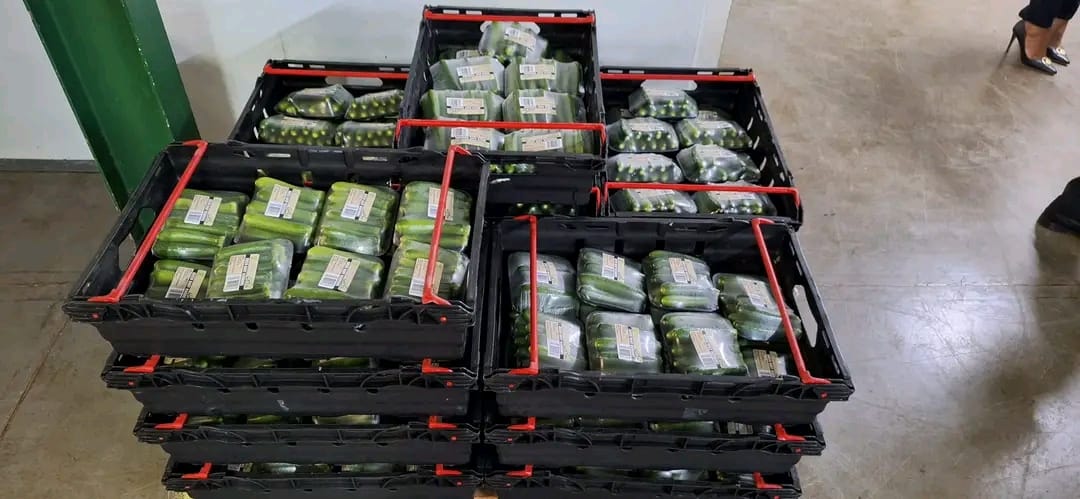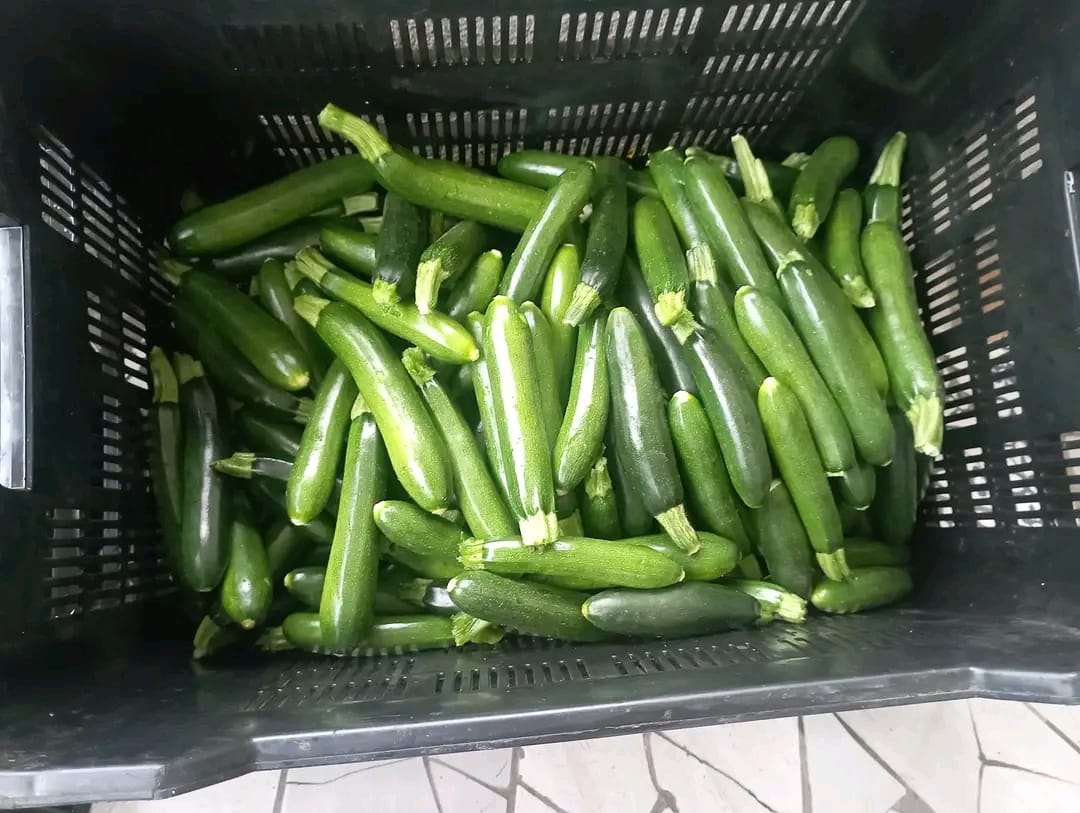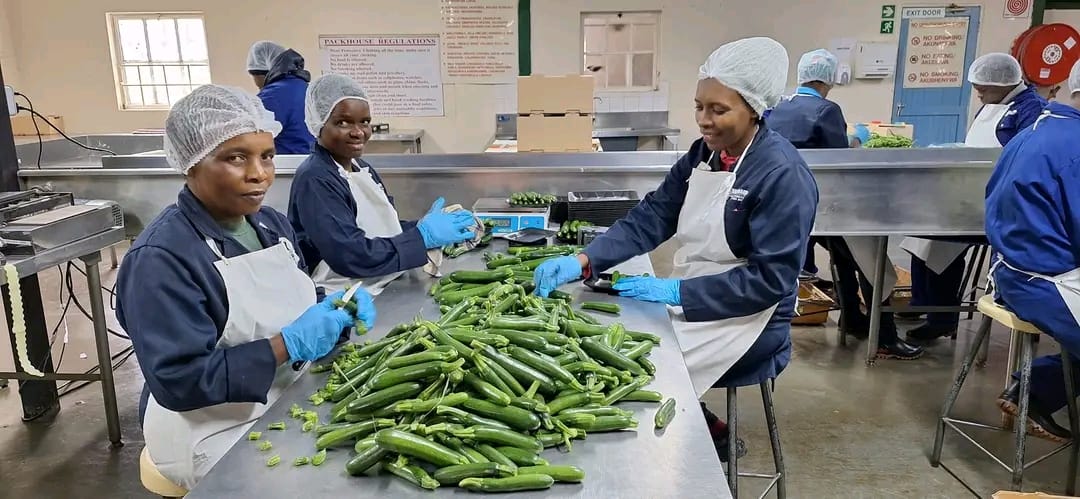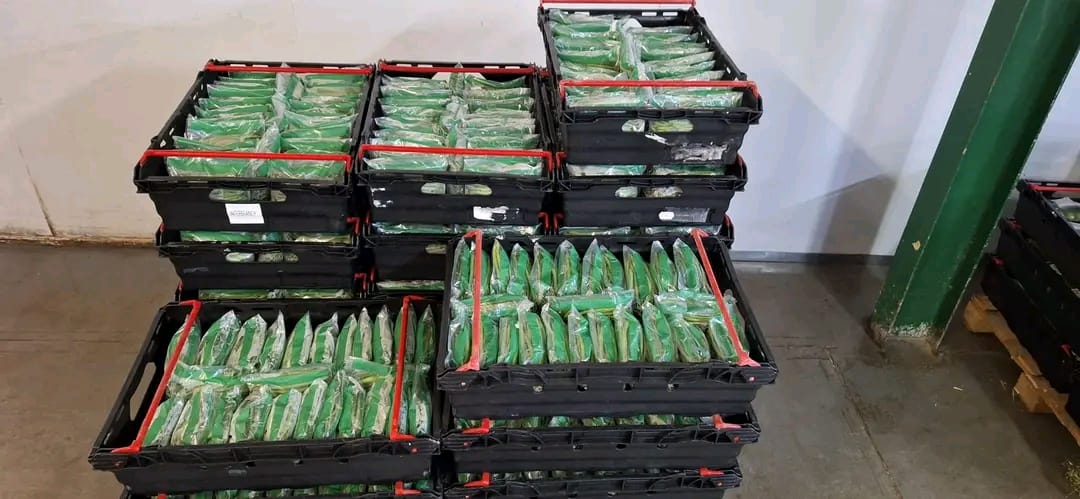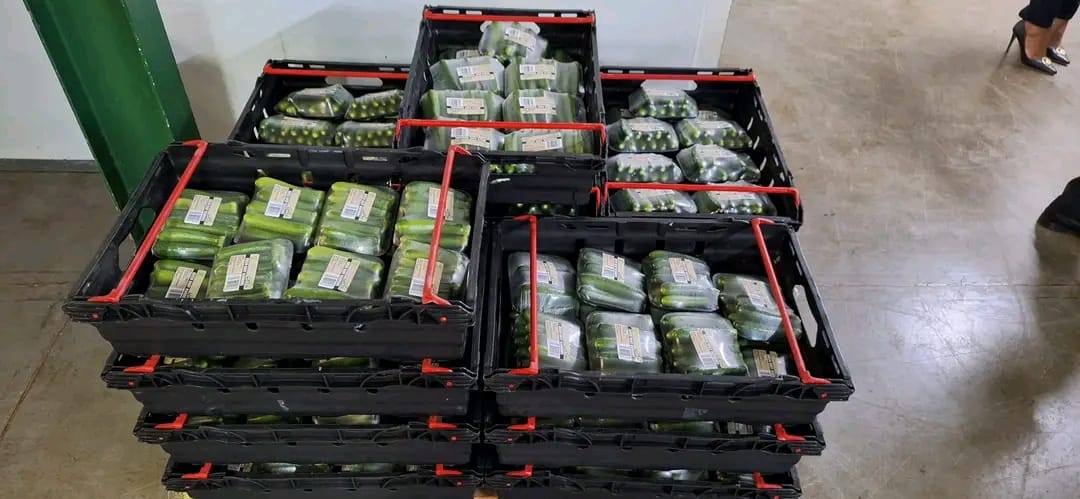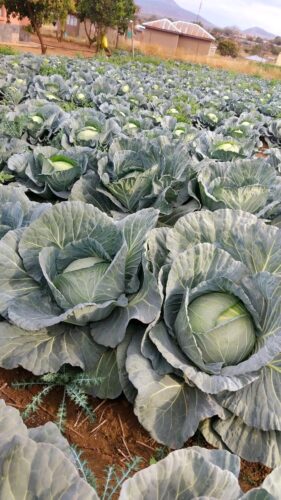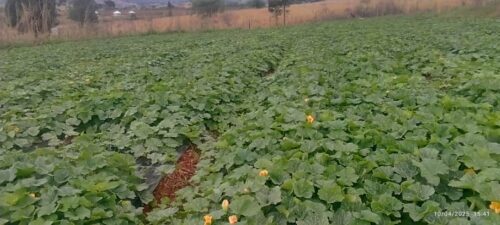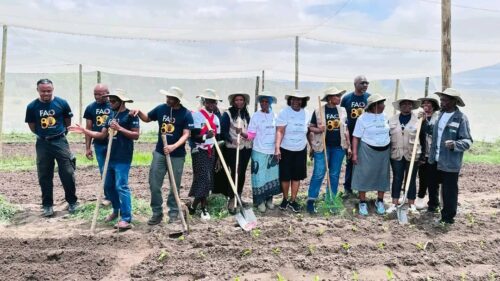BY PHESHEYA KUNENE - EDITOR
PHOPHONYANE - In the emerald fields of Phophonyane, where the morning mist kisses rows of green and the soil hums with ambition, one name rises above the rest, Boniswa Malaza, the 29-year-old dynamo reshaping Eswatini’s agricultural story. A proud Woman Farmer of the Year (Youth Category) winner, Boniswa stands tall not just as a farmer, but as a visionary, proof that smart farming is the new language of progress.
“I’ve learned that the soil rewards those who treat it with intelligence and respect,” she says, her gloved hands gently lifting a tender baby marrow from the vine. Around her, rows of shade-net protected crops stretch like a green orchestra, disciplined, thriving, and humming with life.
THE ART AND SCIENCE OF FARMING BABY MARROW
To Boniswa, baby marrow farming is both craft and science, a delicate balance between patience and precision. On her sprawling farm, over 10 000 plants dance under the Eswatini sun, yielding over 5 tonnes of produce every 45 days.
“It grows fast, overnight sometimes,” she laughs. “If you skip a day of harvesting, it overgrows. It demands attention, but it pays you back beautifully.”
Her secret lies in climate-smart farming techniques, drip irrigation pipes that whisper life into every row, organic compost that feeds the soil, and shade nets that temper the harsh summer sun. These methods not only protect her crops from erratic weather but also ensure sustainable use of water, a lesson she credits to her intensive training in Taiwan.
“That trip changed everything,” Boniswa recalls. “I saw how technology can transform small farms into big businesses. Farming isn’t about luck anymore, it’s about systems, precision, and planning.”
CABBAGE WISDOM: SMART FARMING FOR STRONG HEADS
But Boniswa’s mastery doesn’t end with baby marrow. Her cabbage fields, uniform, crisp, and vibrant, are a lesson in agronomic intelligence. She warns fellow farmers against planting cabbage near crops from the Brassica family like broccoli, kale, and cauliflower.
“They share the same enemies, worms, aphids, and diseases like black rot,” she explains. “It’s like inviting trouble to a feast.”
Instead, she practices smart crop rotation, alternating cabbage with non-Brassica crops such as green beans or baby marrow to rejuvenate the soil and disrupt pest cycles. “Healthy soil is a living system,” she adds. “If you care for it, it’ll care for you.”
Boniswa also emphasizes the importance of spacing, drainage, and balanced fertilization. “Cabbage loves sunlight but hates soggy feet. Give it air to breathe, and it will reward you with firm, market-ready heads.”
FROM FARM TO MARKET: BUILDING VALUE CHAINS THAT WORK
Every crate that leaves Boniswa’s farm tells a story of excellence. Her baby marrows and cabbages are now regular features on supermarket shelves and in NamBoard’s horticulture programme, which supports export-oriented crops such as green beans, peas, and baby marrows.
NamBoard, she says, has been instrumental in linking farmers to lucrative markets.
“They’ve opened doors for us,” she admits. “We’re learning that Eswatini can feed itself, and the region, if we keep producing quality.”
Indeed, global demand for plant-based foods is soaring, and baby marrow is riding that wave. Markets in South Africa, Mozambique, and Botswana are hungry for fresh, premium vegetables, a gap that disciplined Eswatini farmers are perfectly poised to fill.
INNOVATION AS THE NEW FARMING FRONTIER
Boniswa believes that innovation is the lifeblood of Eswatini’s agricultural future. Her use of drip irrigation, mulching, and shade nets proves that even small farms can be hubs of technology and efficiency.
“Smart farming isn’t just about machines,” she says. “It’s about thinking differently, knowing when to plant, how to save water, and how to work with the weather, not against it.”
Her success is rippling through the community, inspiring young farmers, employing locals, and proving that agriculture isn’t the past; it’s the future. “I tell young people all the time,” she says with a smile, “the soil doesn’t discriminate. It pays anyone who’s willing to work and think smart.”
THE FUTURE IS GREEN AND FEMALE
With her eyes set on expansion and plans to venture into aquaculture, Boniswa represents a new generation of women redefining farming in Eswatini, bold, data-driven, and unafraid to innovate.
Her story is more than a farming tale; it’s a statement, that Eswatini’s agriculture is evolving, guided by farmers who see beyond survival toward sustainability, profitability, and purpose.
“Farming,” Boniswa says as she watches her workers fill crates of fresh baby marrows, “isn’t just about growing crops. It’s about growing possibilities.”
And as the Eswatini sun dips behind the Phophonyane hills, one can’t help but believe her, that the real harvest here is not only in the soil, but in the minds and hearts of farmers who dare to dream in green.

